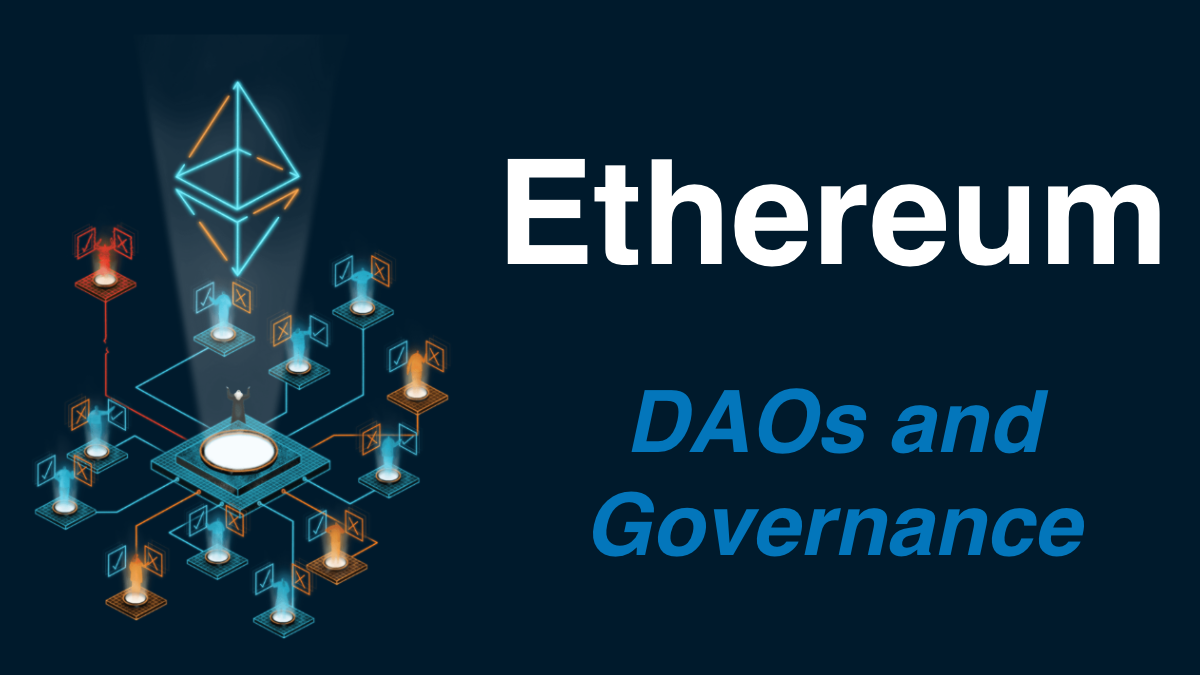
¶ DAOs and Governance
Decentralization is a big word that refers to a lot of things, and there are a countless number of DAOs out there, all doing something unique. These are just my thoughts from my one limited, biased corner of the internet.
¶ Ethereum and Innovation
A long time ago, the first ape climbed down from a tree and man was born.
Fast forward a few millennia, and Vitalik Buterin gave us Ethereum, The World Computer.
Now in 2022, we are all trying to figure out how to build on it. Or really, how to work together on it.
First and most importantly, we must recognize that the nature of innovation and progress is messy. While you’re experiencing it, it’s easy to feel like everything is awful.
Nevertheless, it’s important to examine what’s working and what’s not as we build towards the future.
¶ The DAO Playbook
Every protocol is doing something bespoke, but in general most organizations follow a similar playbook:
- quiet development by a core team, funded by early investors
- initial distribution event, tapering emissions
- transfer of responsibility to community
The transfer of responsibility to token holders is perhaps the most important but least understood factor in this process.
Without responsibility, what is the purpose of a governance token?
Why would anyone buy it and why would anyone want to hold it?
So the early builders took a page from the analog world and said “a token has a value like a stock has a value.”
Tokens were invested with governance power and with it the right to vote and help shape the future of the protocol.
Your protocol.
For a lot of protocols, this comes from a genuine and an admirable place; these are the ideas of democracy.
In practice, we’ve seen a chaotic system, confusing results and a lot of questions.
For example…
¶ MakerDAO
On June 30, 2022, Luca Prosperi told us his side of the controversial MakerDAO vote that took place at the end of June.
When all is said and done, the results are on-chain for all to see… But Luca’s tale shows the chain doesn’t capture everything.
¶ Rari Capital
The tragic hack of Rari Capital (FEI Protocol) led to a round of yes/no votes that left me with whiplash… I can’t begin to imagine what it might have felt like to be a depositor.
Again, on-chain certainty has us in real world chaos.
¶ Wonderland.fi
¶ Decentralization Theater
There have been enough of these incidents, high profile and small, that a lot of people believe there’s no real democracy here.
Most of what we are seeing is decentralization theater indented for two purposes: regulatory cover and community shaping.
¶ Regulatory Cover
Regulation uncertainty has left a lot of questions…
- Which tokens count as securities? Commodities?
- Who is liable?
- Who is making money off this?
- Who gets to tax what for how much?
Until we get requirements, “decentralization” is our answer to these questions.
¶ Community Shaping
At the same time, decentralization is used to build and shape communities.
Investors are much more passionate when they are “contributing”. Analysts are happy when they are given “open” access. Trolls are quieter when they’ve been “promoted” to private discord channels.
¶ Tail Risks
The problem isn’t just decentralization theater, we’ve also seen true decentralization hit some catastrophic edge cases.
¶ Beanstalk
One of the more famous (and more sad) examples is Beanstalk. Their devotion to decentralization and led them to put all decision-making on chain.
Mistakes were made, lessons learned, code has been fixed, and the barn is being raised again.
But the cost was huge.
¶ Merit Circle DAO
Or how about the case of Merit Circle DAO? The community decided their investor Yield Guild sucks (paraphrasing) and to rug them.
Despite real contracts.
I don’t know exactly what happened but (I think) YGG got $.32 on the dollar.
¶ RomeDAO
But perhaps the best way to wrap it up is from the team at House of Sempronia:
Building things in a DAO is a disaster and we encourage no teams to go down this path.
So look, I’m just going to be frank with you. I don’t really believe in DAOs.
Some are a lot closer to the ideal, some are blatant shams, but the ones that survive are the ones who know how to manage a community and know how to whip a vote.
If it even needs whipping.
Eventually I can see governance tokens as stocks and DAOs as corporations;
Hasu has already laid out the path.
Once we make these changes and take the best parts of corp-fi, THEN we can build our new ideas of governance and democracy.
…What was that about liability?
Until then, there is a type of governance I’m bullish on.
This is The World Computer, we can iterate on all of the traditional ideas… but we can also build new primitives.
We can build programmable money.
The best example is the system developed by Curve Finance and Convex Finance.
veCRV has votes. Votes decide emissions. Emissions have a monetary value. Therefore, vote have a monetary value.
One that the market can express!
So when people ask me what I think about the current state of governance in crypto, I give the annoying answer: “it depends.”
DAO-style governance?
I have faith, but I don’t believe we’re there today.
Market-based and automated protocol operations?
Science fiction tech!!
¶ Resources
Source Material - Twitter Link